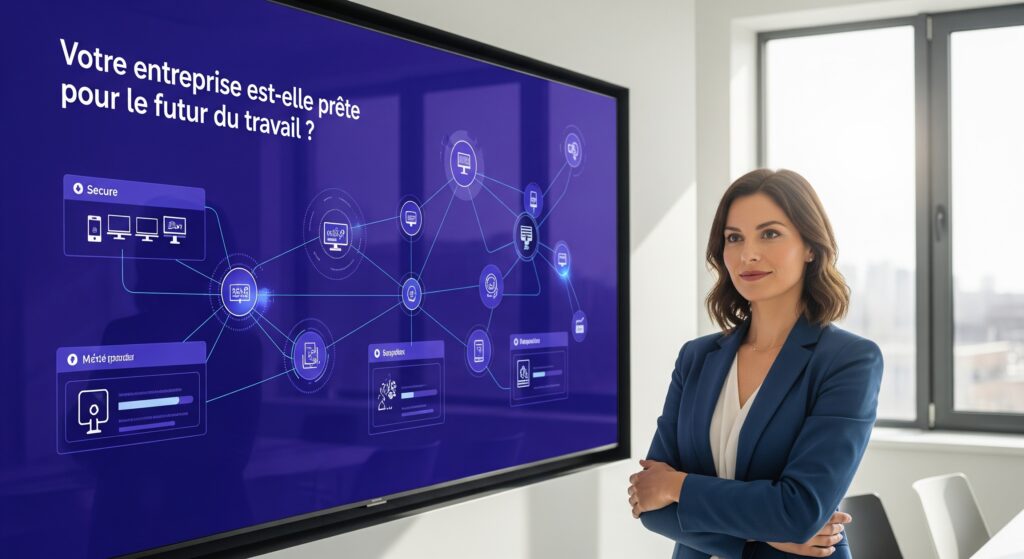As a CIO, your mission is twofold: to provide high-performance collaborative tools while guaranteeing flawless security and compliance. In the Google Workspace ecosystem, these two imperatives are not opposed, but complementary. However, the power of the suite implies a shared responsibility: Google secures the infrastructure, but configuration, governance and access control are your responsibility.
This article is not just a list of features. It's a strategic guide designed to give you, the CIO, the keys to mastering the security of your Google Workspace environment. We'll cover the fundamental concepts, essential tools and best practices for protecting your corporate data, meeting compliance requirements and calmly managing your Cloud strategy.
1. Understanding the Scope: Core vs. Additional Services
The first step to effective governance is to clearly define what you need to protect. The Google ecosystem falls into two distinct categories, with very different contractual and security implications.
-
Core Services: These are the heart of the collaborative suite (Gmail, Drive, Docs, Sheets, Meet, etc.). These services are covered by your Google Workspace contract and, above all, by theData Processing Addendum (DPA). This is where Google acts as your data processor, with strong commitments to security and confidentiality.
-
Additional Services: These are the other Google services (YouTube, Maps, etc.) that your employees can access with their work account. Please note that these services are not governed by the ATD, but by Google's general terms of use and privacy policy.
Your first action as CIO is therefore to log on to the Administration Console and decide which additional services you will allow or block for your organization. This granular management is the first line of defence against data dispersion. To find out more, read our guide to managing third-party applications and Google² services.
2. The Pillars of Technical Security in Google Workspace
Once the perimeter has been defined, it's crucial to master the technical tools at your disposal to secure data within the main departments.
Data Loss Prevention (DLP)
DLP is your safeguard against sensitive data leaks. It lets you create automatic rules to scan and protect content in Google Drive and outgoing e-mails.
- Intelligent detection: Use the library of predefined detectors (credit card numbers, IBAN, social security numbers) or create your own customized detectors to identify confidential information specific to your company.
- Automated Actions: Configure precise actions when sensitive information is detected: block external sharing of a file on Drive, quarantine an e-mail for review, or simply notify the user.
Google Vault: Your Vault for Compliance and eDiscovery
Google Vault is much more than just an archive. It's an indispensable information governance tool that meets two critical CIO needs:
- Data retention: Define retention rules for all your data (e-mails, Drive files, chat conversations) to meet legal and regulatory obligations, even if a user deletes an item.
- eDiscovery: In the event of litigation or audit, Vault enables you to search, identify and export all relevant data in a targeted way, creating legally admissible reports. Find out more about setting up Google Vault².

Advanced Access and Endpoint Management
Security doesn't stop at the cloud; it extends to every device that accesses your data.
- Endpoint management: Enforce strict security policies on mobile devices and laptops (strong password requirements, device encryption, remote wiping of corporate data).
- Context-Aware Access: Go beyond simple authentication. Create dynamic access policies that depend on the user's context: identity, location, device security status and IP address. For example, you can authorize access to Gmail from anywhere, but restrict access to Drive to company-managed devices only.
3. Monitoring and auditing: keep your environment under control
A secure configuration is only effective if it is constantly monitored. Google Workspace Administration Console gives you complete visibility of your domain's activity.
- Audit logs: Who accessed what, when and from where? Audit logs in the administration console let you investigate administrator activities, user connections and Drive file shares.
- Alert Center: Receive proactive notifications about potential threats, such as suspicious login attempts, phishing activity, or compromised devices.
- Access Transparency: For maximum transparency, this tool (available in Enterprise editions) provides you with detailed logs of the actions taken by Google teams when they access your data (usually as part of a support request).
For a complete monitoring strategy, take a look at our security checklist for large enterprises².
Conclusion: Become the Architect of Digital Confidence
For a CIO, mastering Google Workspace security means moving from a reactive posture to a proactive data governance strategy. By clearly delimiting the perimeter of action, finely configuring tools such as DLP and Vault, and implementing continuous monitoring, you transform the collaborative suite into a digital fortress.
This control enables you not only to meet compliance requirements and protect your company against threats, but also to build a culture of trust. You give your employees the freedom to collaborate effectively, while guaranteeing them a secure, controlled environment.
Take the next step to strengthen your organization's security posture.





